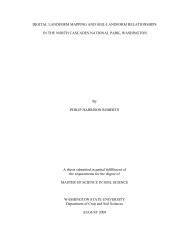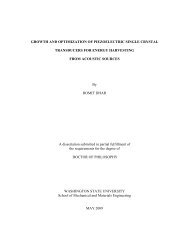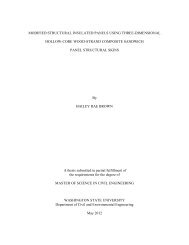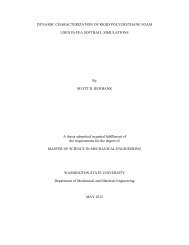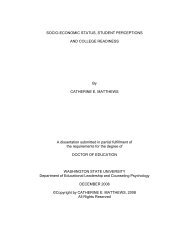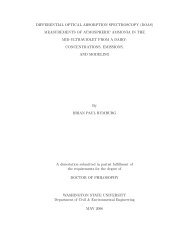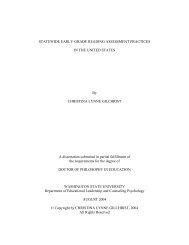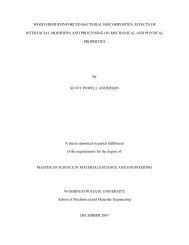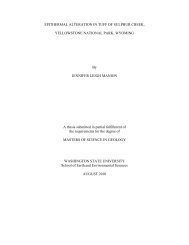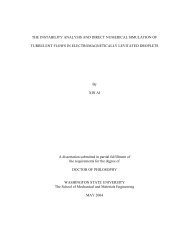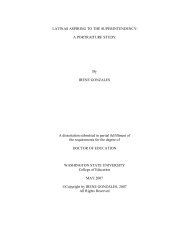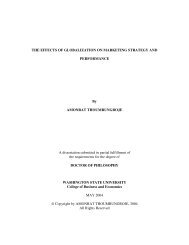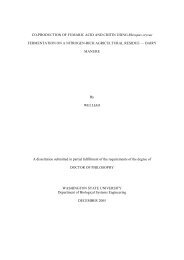the moral reasoning of student athletes and athletic training students
the moral reasoning of student athletes and athletic training students
the moral reasoning of student athletes and athletic training students
You also want an ePaper? Increase the reach of your titles
YUMPU automatically turns print PDFs into web optimized ePapers that Google loves.
conversation <strong>and</strong> attitude speaks to many issues that affect <strong>the</strong> process <strong>of</strong> <strong>moral</strong> <strong>reasoning</strong> in our<br />
<strong>student</strong> <strong>athletes</strong> <strong>and</strong> <strong>athletic</strong> <strong>training</strong> <strong>student</strong>s.<br />
According to <strong>the</strong> results <strong>of</strong> this study, <strong>the</strong> use <strong>of</strong> a <strong>reasoning</strong> process dominated by <strong>the</strong><br />
rules <strong>and</strong> legality <strong>of</strong> a scenario appears to permeate <strong>athletic</strong> departments <strong>and</strong> <strong>the</strong>ir <strong>student</strong><br />
<strong>athletes</strong>. The ideal reasoned perspective includes a <strong>reasoning</strong> process by which individuals utilize<br />
a set <strong>of</strong> <strong>moral</strong> principles that take into account individual social norms <strong>and</strong> laws while<br />
maintaining a higher st<strong>and</strong>ard <strong>of</strong> <strong>moral</strong>ity. Student <strong>athletes</strong>, as well as <strong>athletic</strong> <strong>training</strong> <strong>student</strong>s,<br />
are taught to make decisions with a policy <strong>and</strong> rule based approach. Both are encouraged,<br />
sometimes m<strong>and</strong>ated to read policy <strong>and</strong> procedures manuals. They are asked to abide by <strong>the</strong> rules<br />
because <strong>the</strong>y are told to do so. But <strong>the</strong> coach that said, “They (<strong>the</strong> NCAA) make all <strong>the</strong> decisions<br />
for us. There isn’t room for <strong>moral</strong> <strong>reasoning</strong>,” has pinpointed <strong>the</strong> issue exactly. There seems to<br />
be no discussion <strong>of</strong> what it means to be a honorable person, or a contributing member <strong>of</strong> an<br />
<strong>athletic</strong> department with a high quality <strong>of</strong> character. The issue with a <strong>reasoning</strong> process based in<br />
a rule principled foundation is that rules don’t teach honor. Rest <strong>and</strong> Narvaez (1994) argued that<br />
low scoring <strong>student</strong>s are unable to underst<strong>and</strong> discussions about “intermediate level concepts”<br />
essentially because <strong>the</strong>y do not have <strong>the</strong> cognitive foundation to even recognize <strong>the</strong> issues. They<br />
don’t dem<strong>and</strong> individuals to practice <strong>moral</strong> <strong>reasoning</strong> <strong>and</strong> if something isn’t used, we know it<br />
will progressively fade away.<br />
Athletic departments provide ample opportunity for <strong>the</strong>ir <strong>student</strong> <strong>athletes</strong> to develop <strong>the</strong>ir<br />
physical <strong>and</strong> “life” skills. Athletic <strong>training</strong> <strong>student</strong>s abide by strict rules <strong>and</strong> progress through<br />
rigorous <strong>training</strong> in <strong>the</strong>ir quests to becoming certified <strong>athletic</strong> trainers. Kohlberg (1975) argued<br />
that <strong>the</strong> discussion, debate <strong>and</strong> challenging <strong>of</strong> our views causes us to consider more sound<br />
positions, that consider <strong>the</strong> perspectives <strong>of</strong> o<strong>the</strong>rs <strong>and</strong> social law. In <strong>the</strong> lives <strong>of</strong> <strong>the</strong>se college<br />
79



